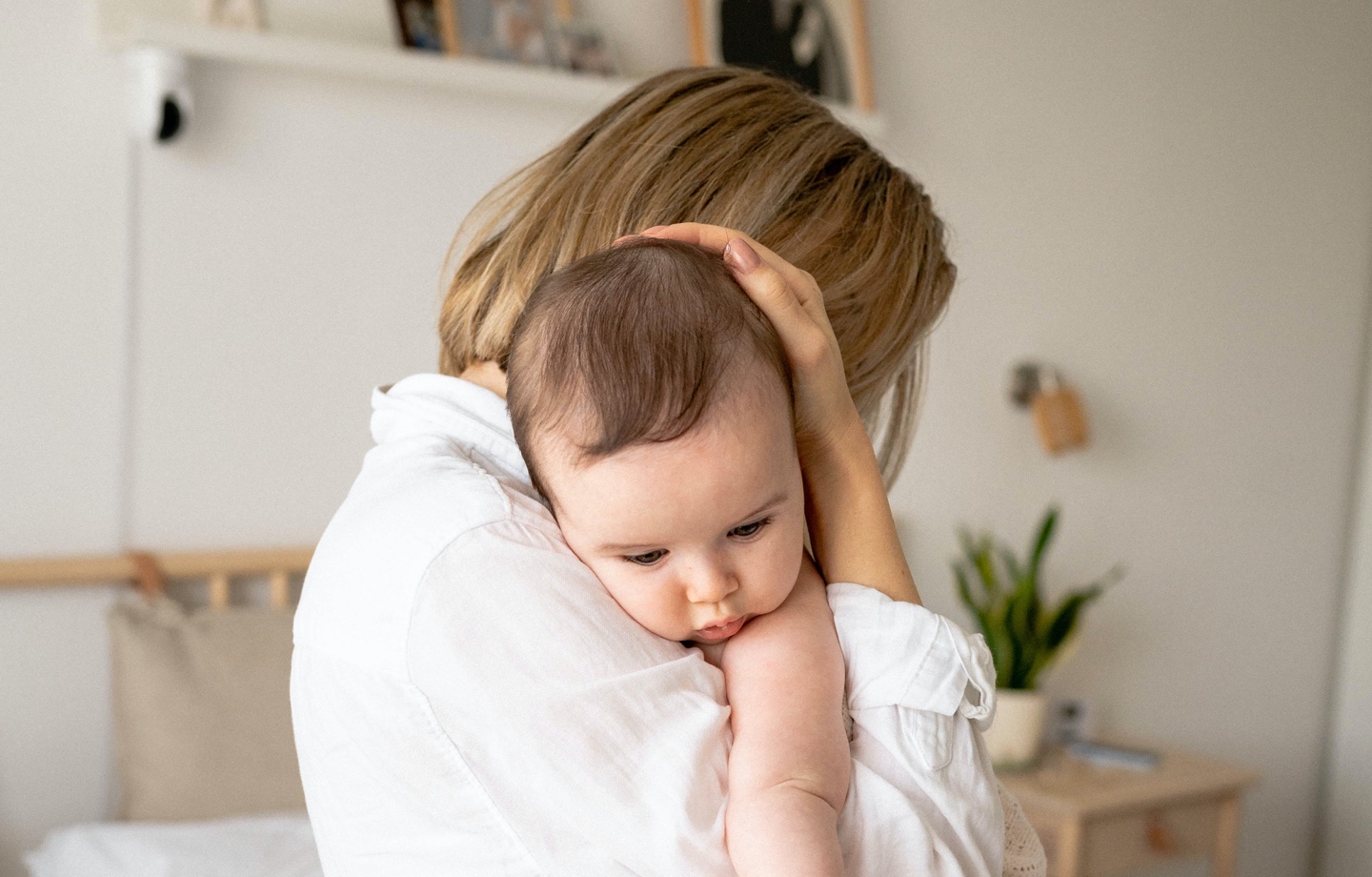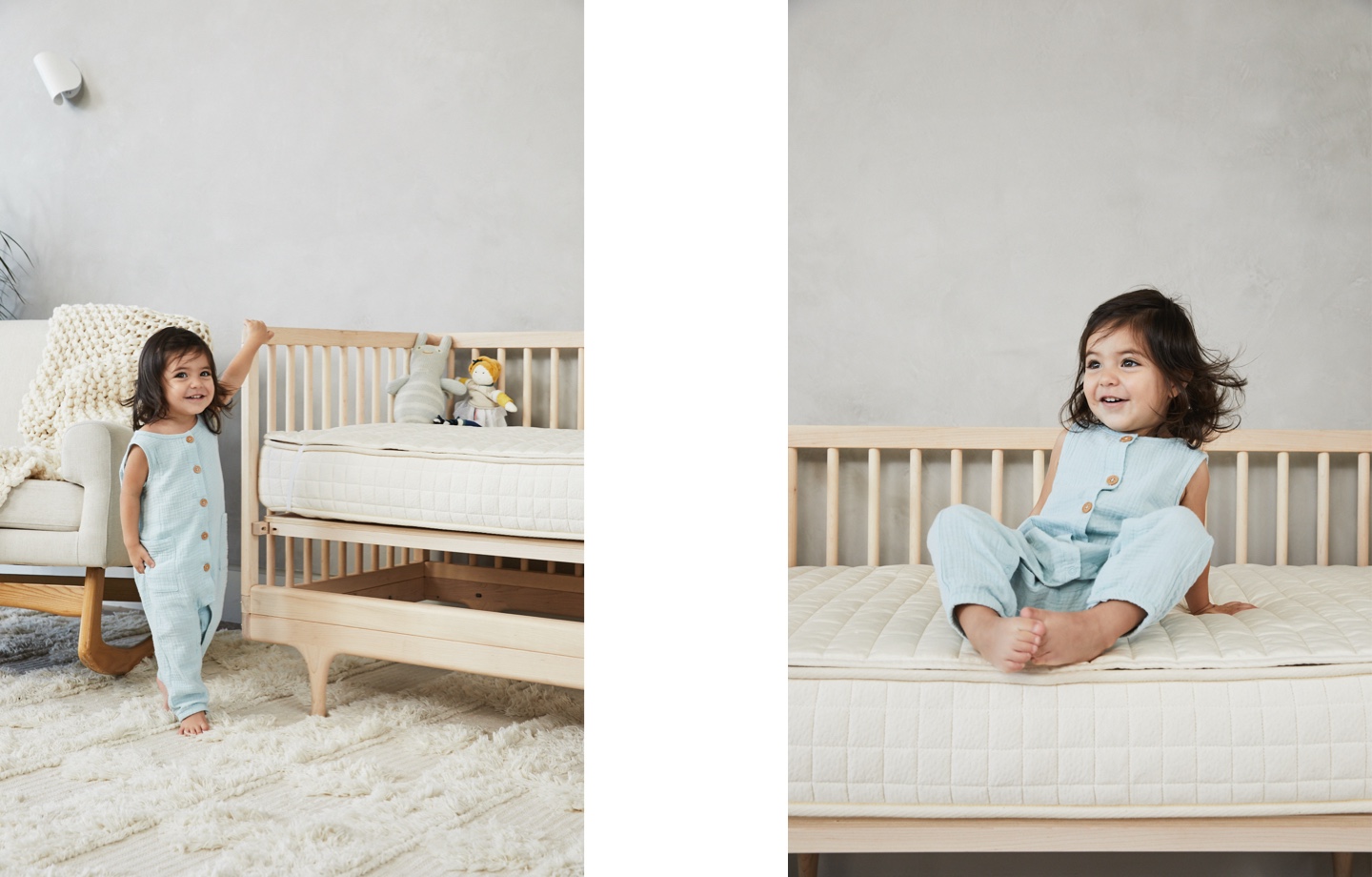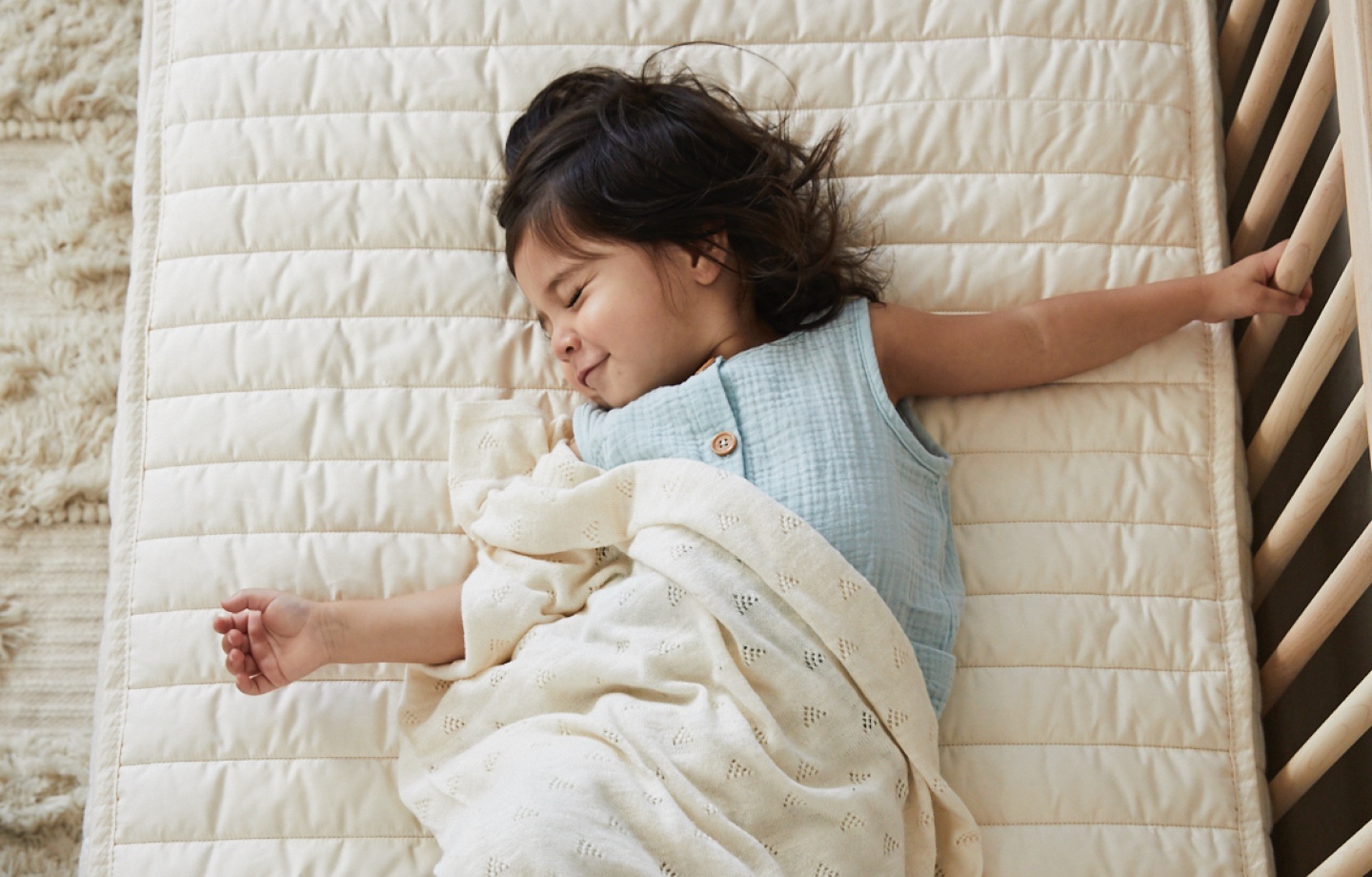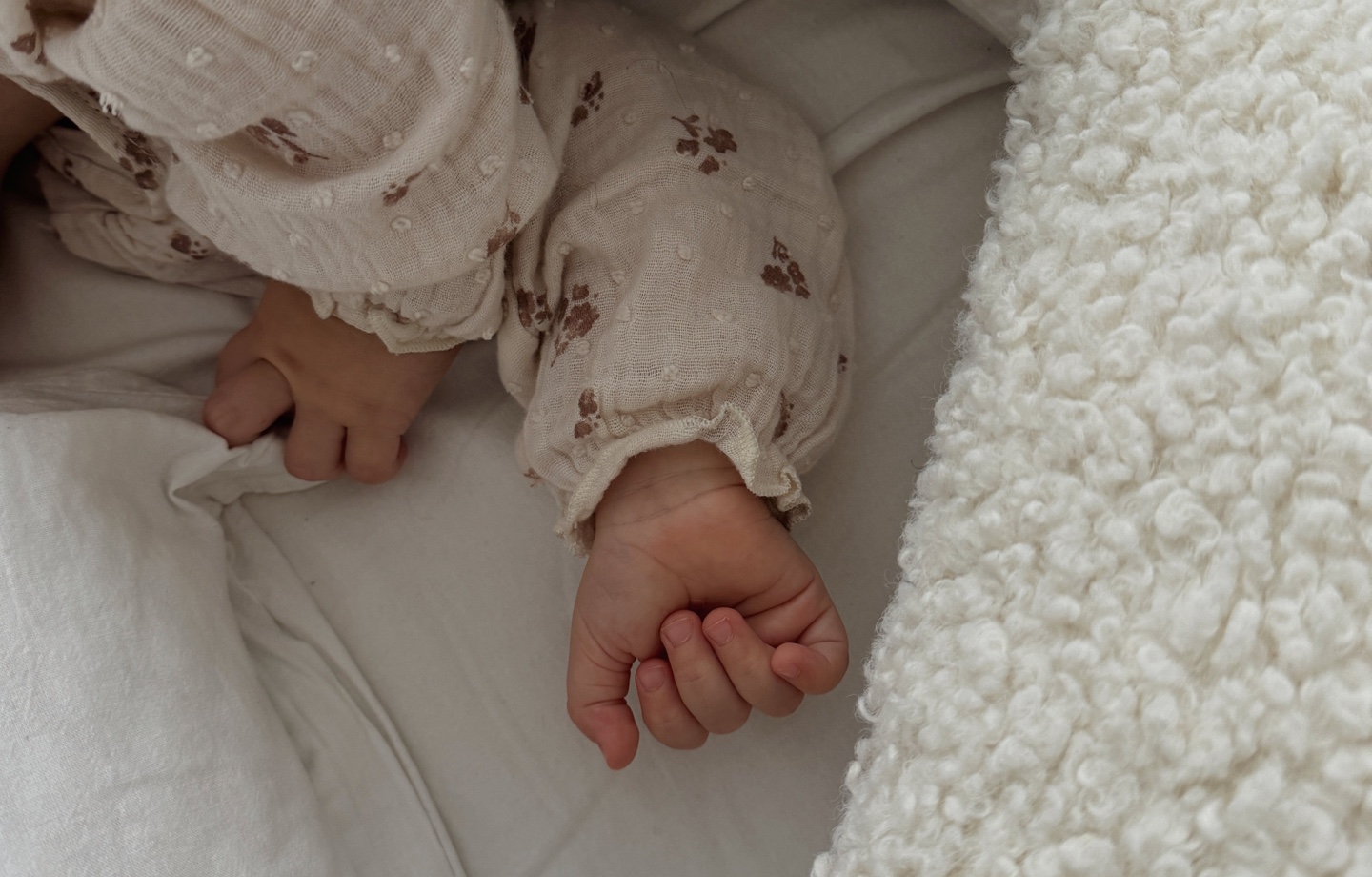Sleep training is a popular parental method for getting a baby to sleep through the night. Here’s why I didn’t do it.
A disclaimer: Before we jump in, I want to acknowledge that I know that what works for every parent and every baby is different. This is my story about what worked for me and my baby. I hope it resonates with some parents, and, if it doesn’t resonate with you, that’s okay, too.
Four months ago, I was at my breaking point. As a first-time mom, I was prepared for sleepless nights and exhaustion, but after nine months of surviving on almost no sleep, too much coffee, and hoards of unsolicited advice, I was losing my mind.
My son, then eight months old, had never slept more than 2.5 hours in one stretch and commonly woke up every 45 minutes — all night. Because I was new to this, I polled everyone I knew about how their babies were sleeping. The answer: way better. If that wasn’t bad enough, the internet only fueled my frustrations:
- The Perfect Bedtime Routine For Your Baby
- Sleep Training Saves Marriages
- How to Know if Your Baby is Overtired
- The Ideal Wake Windows By Age
- Is Your Baby Taking Advantage of You?
- Sleeping Through The Night by 4 Months
- Independent Sleep for Babies
- Why Your Baby Isn’t Sleeping Through The Night
It seemed like the people of the internet (and my friends, family, and pediatrician) were screaming at me, telling me my son wasn’t sleeping because of something I was doing. I didn’t have him on the perfect schedule, my bedtime routine wasn’t good enough, I was creating bad habits by comforting him, he was either under or overtired — but which was it? — and the only way I’d ever sleep again was to sleep train him.

By its simplest definition, sleep training is the process of teaching your baby to fall asleep on their own. It’s recommended that parents begin when a baby is between four and 6 months old. The thinking is once a baby is sleep trained, it will learn to self-soothe and fall back asleep when it wakes in the night, resulting in more rest for both baby and parents. There are many approaches, some of the most popular being cry it out, the Ferber method, the chair method, the bedtime fading method, and the pick up, put down method.
So, I set out to find the perfect sleep training program for me and my family. I read every blog, followed popular sleep trainers on social media, and even made discovery calls to find the perfect program. But something always stopped me from initiating a plan. “The key is to put your baby down awake,” “Do not pick your baby up when they ‘protest cry,’” “Start the timer when your baby starts crying, and do not go in the room to comfort your baby until the designated time has passed.” “You must eliminate night feedings, your baby doesn’t need milk at night.”
Although I was on the verge of a sleep deprivation-induced mental breakdown, would listening to my baby cry and not responding to him help my mental state? For me, the answer was a resounding no.

Read more: The Best Books For Toddlers
Luckily, through my painstaking research, I stumbled upon a corner that saved me: Sleep Without Sleep Training. For the first time, I heard phrases like, “You will sleep again, even if you don’t sleep train,” “Night wakings are normal,” “Sleep needs are unique to each child,” “Nurturing your child’s stress is essential to growing babies brains towards lifelong mental health,” and, my favorite, “you’re allowed to say you’re tired without someone suggesting you sleep train.”
After finding this reassuring advice, I found a “gentle sleep coach.” Her suggestions were based on my son’s temperament and unique sleep needs. She never made blanket statements about how my son should be able to sleep by a certain age. Most importantly, she assured me that responding to my son at night didn’t mean my son would never learn to sleep.
We got to work tracking everything my son did. Every bite of food and ounce of milk, his mood upon waking, how long it took to settle him, what we did to settle him, and, of course, when he slept and for how long.
Here’s what we learned:
- No matter what my son’s naps and nighttime sleep looked like, he never slept more than 12 hours in 24 hours (which is, not surprisingly, on the low end of the sleep needs spectrum for a baby his age).
- If we wanted 10 hours of nighttime sleep, we needed to start capping his daytime sleep at 2 hours (yes, this went against the “never wake a sleeping baby” adage).
- We started aiming for nighttime sleep between 8:30 pm to 6:30 am and saw immediate improvements.
- We kept him awake for 4.5 to 5 hours between his last nap and bedtime (inconsistent with common recommendations that babies should never be awake for more than 3.5 hours) and again saw immediate improvement.
- The rest were minor tweaks. For example, did he sleep better when he took a longer first nap of the day or when his second nap was longer?
Within weeks, I felt like a new person. We completed the program when my son was just over a year old. He doesn’t and has never slept through the night. Some nights he only wakes up once or twice, and those nights are amazing. On other nights, especially when he’s sick or teething, he still wakes up multiple times.

Read more: How to Help Your Child Connect With Nature
Sleep training is a technique that many families use — and it works great for them. But if you think sleep training may not be a good fit for you or your baby, here are some alternative resources that helped me:
The Nurture Revolution and @nurture_neuroscience_parentling
Dr. Gabor Maté The Myth of Normal
Have feedback on our story? Email [email protected] to let us know what you think!

Shop Pillows
The Essential Organic Pillow Collection
Gentle, breathable, non-toxic support.






